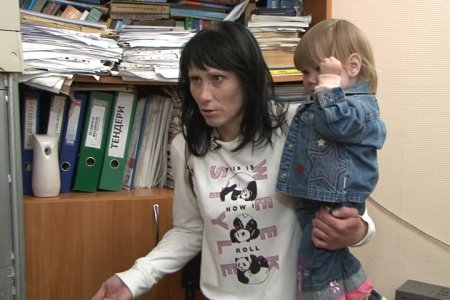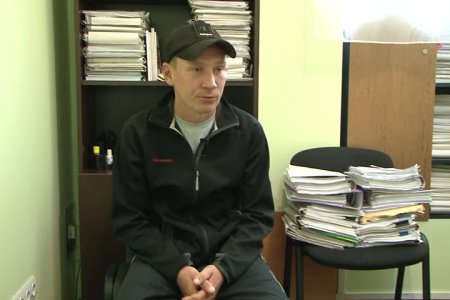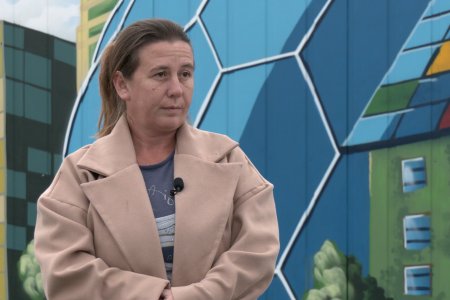On the 24th, at half past seven, a neighbor called and shouted: “Are you sleeping? Get up! Run! The war has begun!” I’m telling you this now, and my whole body is shaking. I couldn’t understand — how? What to do? That’s how it all started for me. What did I do? I went out into the street to meet people. Nobody could understand what would happen next. The flow of cars was leaving not along the Warsaw highway but from Hostomel through Zdvyzhivka and Borodianka —just car after car.
But the shops were still open. They started closing on the 24th or maybe the 25th. There were queues. People took everything: bread, canned food, everything the stores had. Nobody knew anything and panicked. I walked and talked, but inside, there was fear. I’ve never experienced anything like this. You don’t know what you’re afraid of. What does war mean? How is it? They talked about it on TV, and my grandfather told me about it. My grandfather reached Berlin, returned, and told stories. But only in episodes. He probably didn’t want to injure us because there was fear. We’ve seen enough of this fear now.
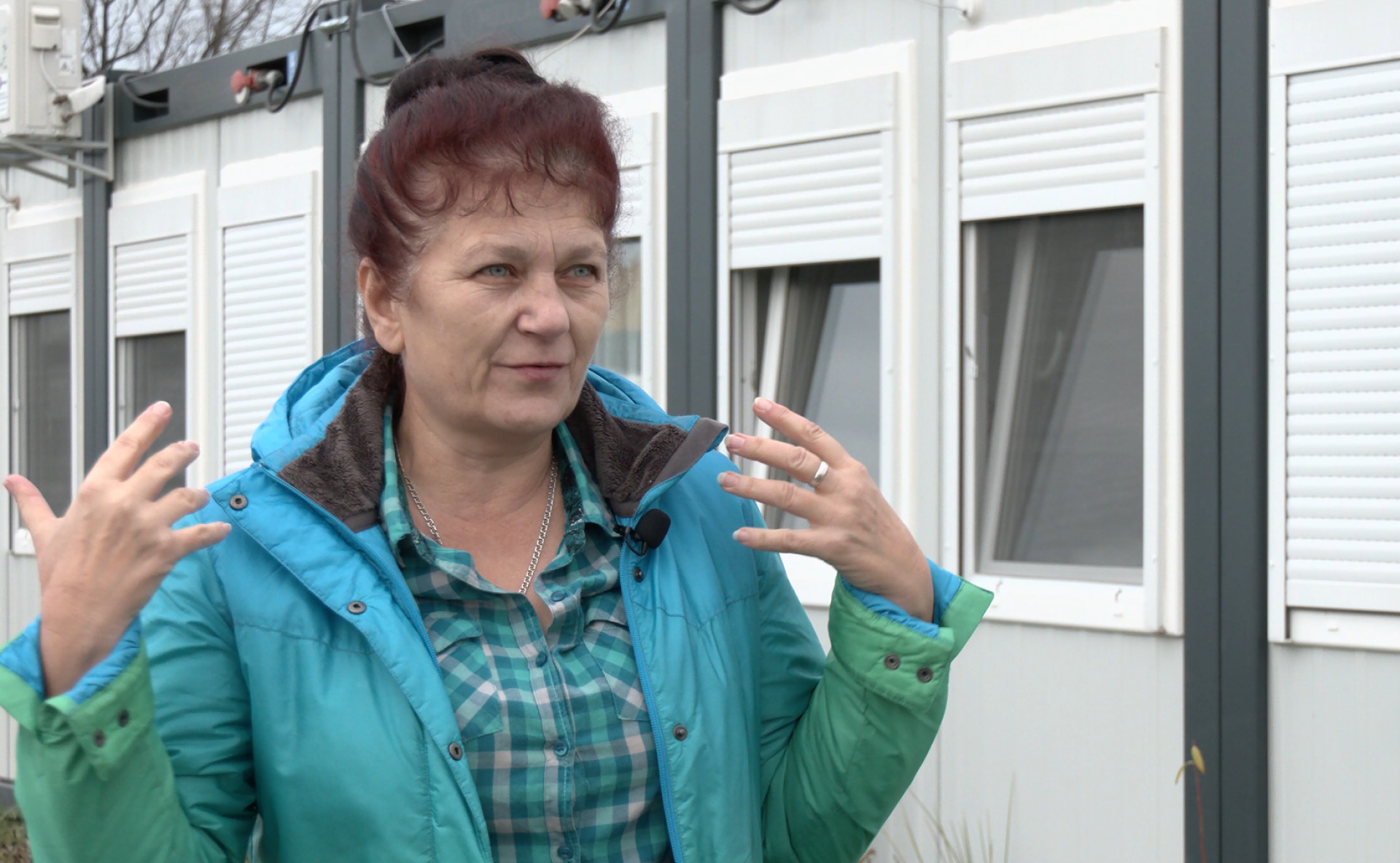
A man came from the village, and I said: “Leave, and I’ll stay here myself. Go to the village.” I thought Borodianka was closer to Hostomel, and the village was further away. They [the family] would be there, and I would be calmer. Suddenly, the son arrived in the evening and said: “Mom, I knew you would be afraid, so I came.” However, he could no longer go back. He stayed with me. We lived between a basement and an apartment. We have the first floor, and the basement is in the neighboring house. So we went back and forth.
It was terrifying at night. We were sitting in the basement, but some went home. It was fearful how much we were bombed! I still have this fear.
Now, I’m having a hard time falling asleep. I only fall asleep in the morning. I do not know why. It may pass over the years, but it’s tough for me now. And at night it was scary because people were leaving, about seven people left. It felt like someone was walking past the house. And dogs usually bark, but there was suspicious silence. We could hear people pass by. Maybe the Katsaps [ethnic slur for Russians] were walking around, we don’t know. It was freezing in the morning. We arrived home at five o’clock. It got a little warmer, and we went to bed dressed. And then the tanks were coming again. You grab your bag again and run to the basement again. The Russians first drove along the bypass road. And then, probably, someone suggested the way, and they pulled out onto the street and walked through the center.
And that’s how it was: a man was walking, maybe he waved his hand or something. One move — they immediately shoot.
By then, some of our phones were dead, and the power had disappeared. People. Those who could get through to somewhere said that they shot [people] here and there... So, we began to be even more afraid. How could it be different? A man was riding a bicycle, and he was shot. Here, they demolished everything: they bombed the school, the children’s center, and the UNESCO site. The foundation only remains. Our guys were hiding behind our house and throwing Molotov cocktails.
If the Russians didn’t like something, they would bring an armored personnel carrier or a tank, turn it around, and fire at the windows. The curtains in the apartments light up, and everything is on fire. There were many of them: 200-300 per unit. They had tanks and armored personnel carriers. There was such a roar, worse than an earthquake. As soon as they passed, we ran out of the basement and saw which apartments were on fire. Our guys were running around trying to put it out. They stopped the fire three times.
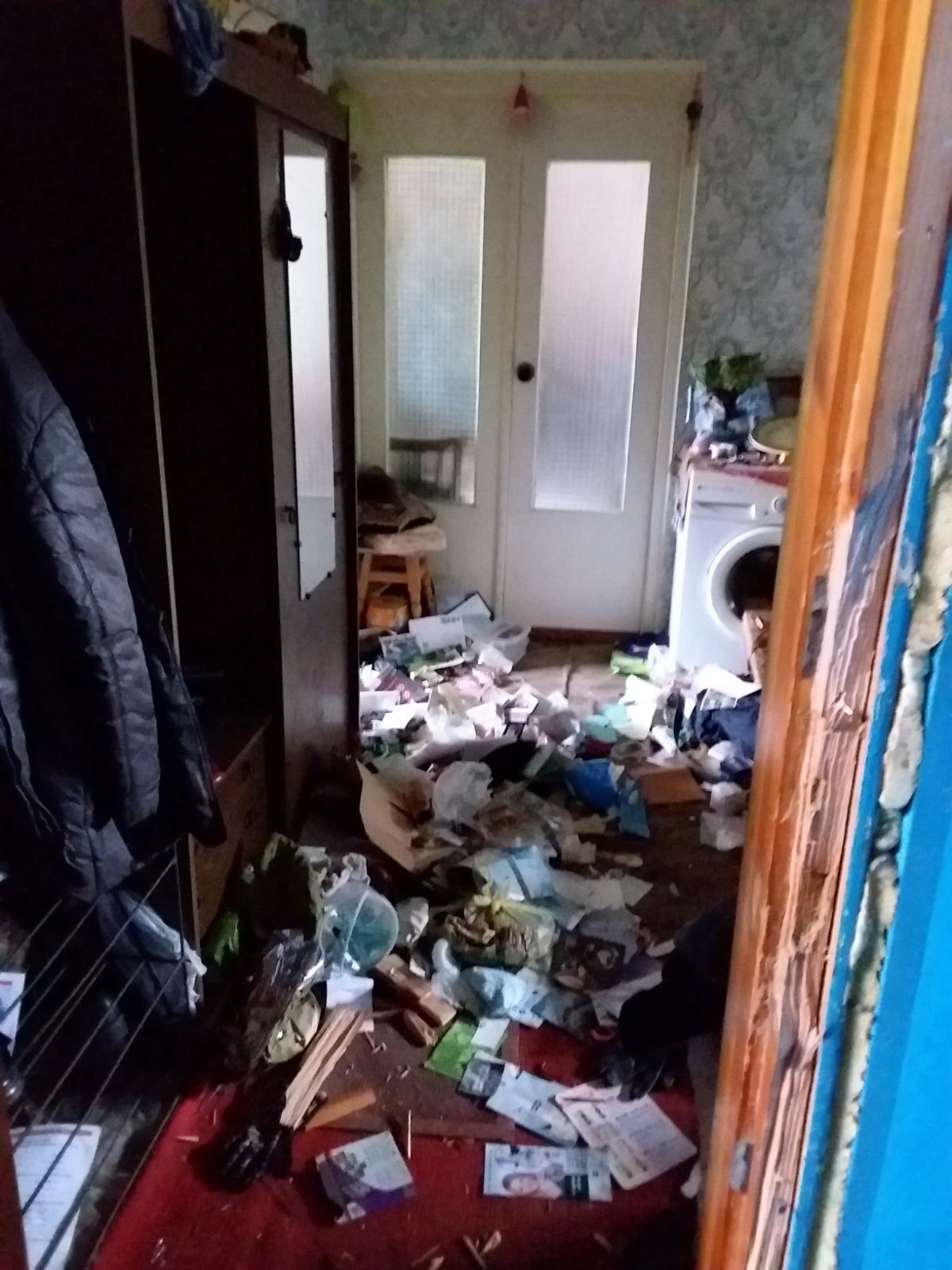
Here, for example, is my apartment: the windows are broken, but the apartment is intact. Everything is wrecked, but that’s nothing. The blow was heavy, and the house opposite collapsed. It happened on the first of the month [March 1], in the evening, around nine o’clock. We were all sitting in the basement, and planes were flying. On the roundabout, if you drive along the Warsaw highway, they already bombed. We first heard a roar, and then a plane flew over us. And it boomed. There was a veil before my eyes and fog from the blow or something else. I went deaf. I saw people saying something, but I didn’t hear anything. After about forty minutes, I started getting better. Everyone was afraid, and no one came out. Then, closer to eleven, we left. Our house was on fire because one apartment wasn’t closed, and the flames spread to the next-door flats.
We looked, and there was no house opposite ours. There were still people alive there. Someone came up and wanted to help, but with what? They were crushed under the slabs. Moans were also heard there.
We went to the apartment: a wave knocked out the door; we lifted it, put it in place, and were there until 2 March, until the morning. Then we left, and our neighbors picked us up on Semashko Street and took us to Potashnia. I was there for about four days and then went to my godfather in Halynka. I was there until the 12th. How we drove by car to Lviv is a separate story. Firstly, the village of Zahaltsy, next to Borodianka. Half the town was gone; the streets were just smashed. Russian helicopters flew over Borodianka and further over the villages and fired.
We were driving, and they were shooting at us. I heard — “ding”. Maybe the car got hit.
How we got there, I don’t know. It was terrible. I was so scared when they bombed us from planes. It’s beyond words: these sounds and everything else. But, thank God, we escaped. The children were still there, but later, they also left. They left for Teteriv, and I was in Lviv.
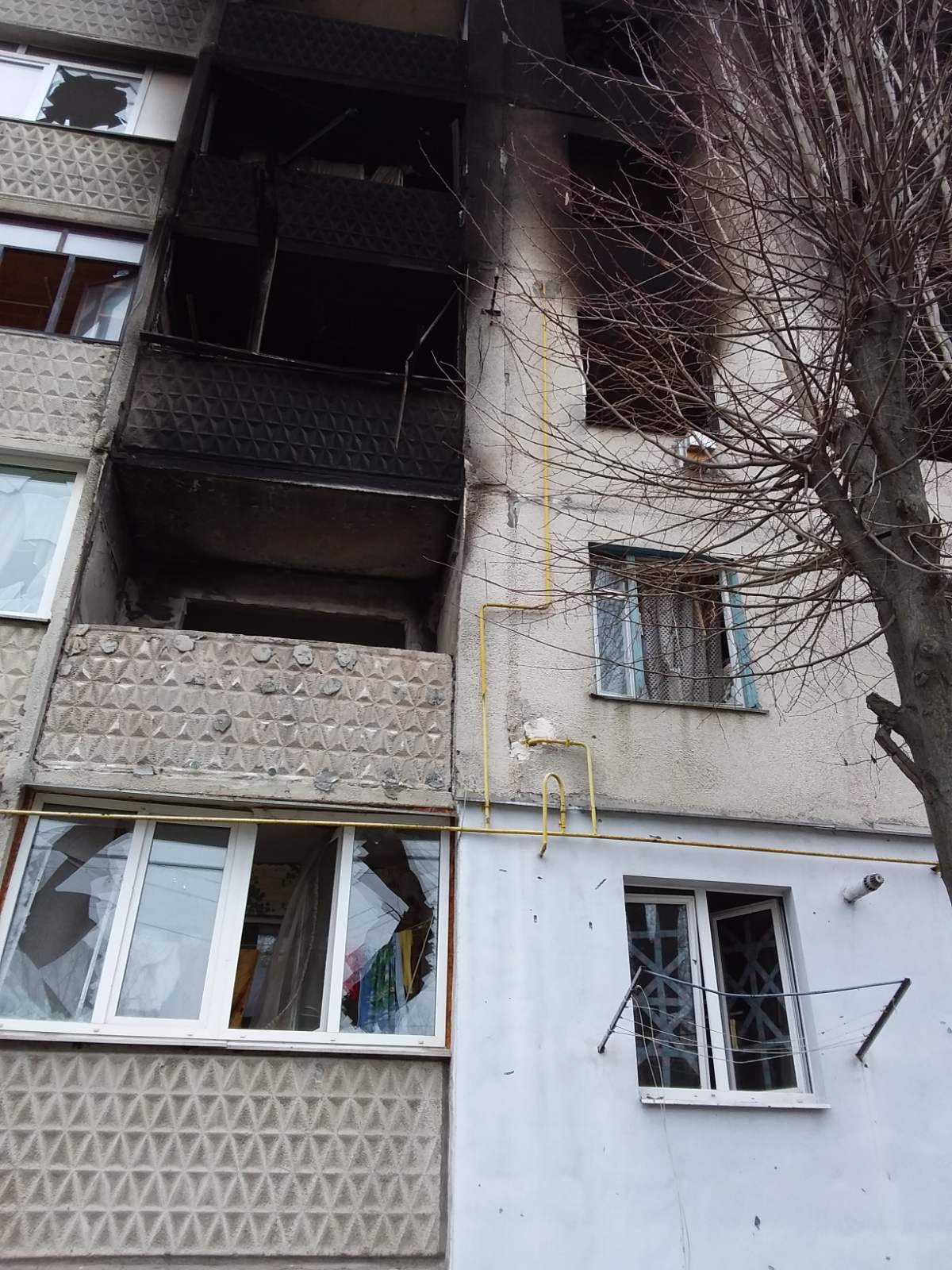
We returned, my youngest and I went home, and there was horror: wire, paper, clothes, shells, balls. There were a lot of wires. They said don’t go because there may be a trip-wire. We couldn’t even talk to each other. We stood dumbfounded and looked at this horror. I can imagine how it is now in the Luhansk region, where everything is being wiped off the face of the earth.
I hate Katsaps! Today, for instance, when the air raid alarm began, everyone spoke with one voice: “May you die! That’s it!” No one is silent as soon as the alarm starts, and we say they should all perish. Because you can’t do this to civilians — you can’t do this.
